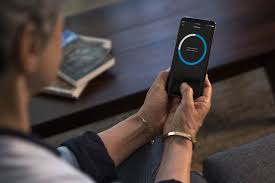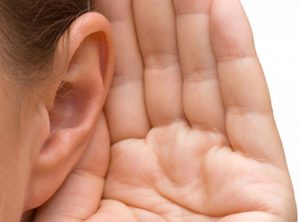Wearing Hearing Aids Will Help Retrain Your Brain
Good communication affects every aspect of personal relationships and life. If you have even mild to moderate hearing loss and have made the decision to wear hearing aids, congratulations on taking steps to better hearing and a more fulfilling life. The National Council on Aging reports that hearing loss negatively impacts the quality of life, personal relationships, and communication ability, and it can cause depression. Although no hearing aid can restore your hearing to 100% normal, they have evolved over the years and are quite amazing tiny better hearing devices. The following tips will help you get the most out of your new hearing aids:
Wear your hearing aids.
Hearing aids cannot help you if they are on top of the dresser or in your sock drawer. You need to wear them consistently. Hearing aids are made to be worn 12-16 hours a day. Getting used to hearing aids and your new hearing is a process. If your brain is getting an inconsistent signal because you are not wearing the aids on a regular basis, the process of getting used to your hearing aids will be longer and more difficult. It is also important to wear them in all listening situations. Even if you are home alone, and there is no one to talk to, wear your hearing aids.
You cannot expect to do well in a challenging noisy situation if your brain is not used to hearing in an easy quiet environment or situation. The exception to this rule is that you do not want to wear your hearing aids around dangerously loud noise levels (lawnmower, leaf blower, or snow blower). You cannot reverse hearing loss but you can prevent further damage from noise exposure. When you are using power equipment, take your hearing aids out and use hearing protection.
Things Will Sound Different.
Things will sound different when you are wearing your hearing aids. This is because you are hearing sounds that you haven’t heard or as clearly. The brain needs time to make sense of what you are hearing. You actually need to retrain your brain to hear with your hearing aids. One of the first things you will notice when you are wearing your hearing aids is that your own voice sounds different. It may sound a bit hollow or louder than what you remember. With time and consistent use, your brain will adapt and you will get used to the sound of hearing your own voice.
Don’t Expect To Hear Everything.
Even people with normal hearing need things repeated or may misinterpret what is said from time to time, so don’t expect to hear everything. Hearing aids can’t give you better hearing than people with normal hearing, so have reasonable expectations. It’s helpful if you share information about your hearing loss with family and friends. Sometimes family assumes that once you have hearing aids you should hear perfectly, even when they’re talking to you from the third floor and you’re in the basement. Having an open conversation about your hearing loss will help manage their expectations and ensure that everyone is on the same page.
Hearing Aids Require Regular Maintenance.
Hearing aids require regular maintenance, similar to how a car needs tune-ups, to ensure optimal performance. Cleaning and checking hearing aids every 3-4 months is ideal. An annual audiological re-evaluation should be done to check for any changes in hearing. If there are changes, your hearing aids may need to be adjusted or fine-tuned. If you have questions or concerns, please give us a call at HearSource.com at 1-800-416-2434.
We are HearSource and we are here to help.




